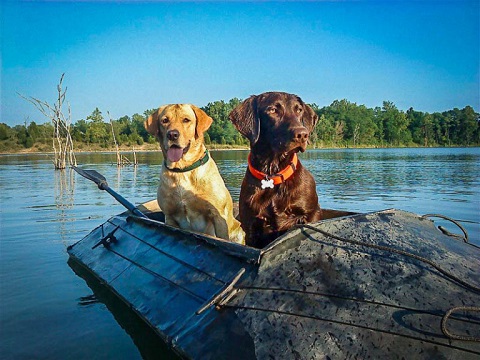Fish Report for 12-29-2016
Importing native snakes to control ground squirrels?

by Carrie Wilson
12-29-2016
Website
Question: We have a small orange grove in Ventura County that has been overrun by ground squirrels in the past few years. Is there any legal method of “importing” king snakes or gopher snakes onto our property to help control the squirrel population? (Darrell J., Ventura County)
Answer: Unfortunately, we don’t allow the release or relocation of snakes into the wild without specific authorization, and at this time we do not allow it for bio-control such as you are requesting. According to CDFW Amphibian and Reptile Conservation Policy Coordinator Laura Patterson, “We’d have to evaluate what else they may eat that could be sensitive, make sure they’re disease-free and that they are genetically similar to the local snakes.”
If the property where you live is hospitable, we’d assume you have gopher and king snakes there already. However, if they’re not currently there, perhaps the site is just not suitable for them. These snakes naturally occur in most places where the habitat and prey sources can support their survival.
The only circumstances in which we might allow snakes to be relocated would be if there was a development nearby, and the snakes would otherwise be killed by construction. In a case like this, we might allow them to be relocated to another property nearby.
Hunting on property not posted with “No Hunting” signs?
Question: Can I hunt on property that is fenced but not posted with “No Hunting” signs without specific permission from the landowner? (Anonymous)
Answer: No, it is unlawful to trespass onto fenced property for the purpose of discharging any firearm or taking birds or mammals without the written permission of the landowner or other authorized person.
Fish and Game Code regulations specifically state that if property is owned by another person and is either under cultivation or enclosed by a fence, you need written permission (Fish and Game Code, section 2016). This law also applies to land that is not fenced or under cultivation but is posted with no trespassing or no hunting signs. A simple guideline is to respect crops, fences and signs, and in any other circumstance that makes you wonder about hunter access, seek out the landowner and ask for permission. In cases involving publicly owned property (game refuges, state wildlife areas, etc.), specific written permission may or may not be required.
Sea urchin sport harvesting?
Question: I’m looking for confirmation regarding the recreational take of sea urchins. Is it correct that they can be taken with a California sport fishing license as long as they are not taken in marine protected areas? Also, that the daily limit is 35 urchins and size does not matter so I will not be required to carry a measuring gauge like with abalone diving? Is all of this correct? (Dan L.)
Answer: Yes to all above. Sea urchins are legal to take in California with a sport fishing license. The season is open year-round for all species of urchin. The limit is 35 urchins per day/in possession and there is no size limit (California Code of Regulations Title 14, section 29.05). Sea urchins can be taken only on hook and line or with the hands (CCR Title 14, section 29.10). These regulations can be found in the Ocean Sport Fishing Regulations booklet, along with the marine protected areas in California that are closed to the take of sea urchins.
Why can’t hunters buy extra preference points?
Question: I’ve noticed in other states that hunters are allowed to buy preference points. Why can’t hunters in California buy extra preference points like elsewhere? (Noel)
Answer: The California Department of Fish and Wildlife (CDFW) does allow hunters who do not wish to apply for a premium hunt in a specific year to essentially “buy” a preference point by applying in the drawings for a preference point. These are only for deer, elk, antelope or bighorn sheep. Hunters can only obtain one point per year and cannot obtain points for previous years in which they did not apply.
According to Tony Straw from CDFW’s Automated License Data System Unit, CDFW’s Modified Preference Point System was established to reward persistent, unsuccessful applicants and provide a predictability of when a hunter will be drawn for their premium hunt choice, while still providing some opportunity for new hunters.
If a system of “buying extra preference points” was implemented, it would remove the predictability of winning a premium hunt because the number of hunters at the various point values would be inconsistent each year (it would depend upon the number of hunters purchasing additional points). Additionally, the advantage gained by a hunter who consistently applied without success over the years would be significantly reduced in a single year as other hunters at lesser point values purchased additional points.
Carrie Wilson is a marine environmental scientist with the California Department of Fish and Wildlife. While she cannot personally answer everyone’s questions, she will select a few to answer each week in this column. Please contact her at CalOutdoors@wildlife.ca.gov.
More Reports
California Department of Fish & Wildlife Reports
for Friday, December 23rd, 2016: 2017 Warden Stamp to Raise Funds
Human-powered boats

12-22-2016
Question: I have a question regarding a human-powered boat for duck hunting. I understand from the regulations that sails and...... Read More

Website Hosting and Design provided by TECK.net